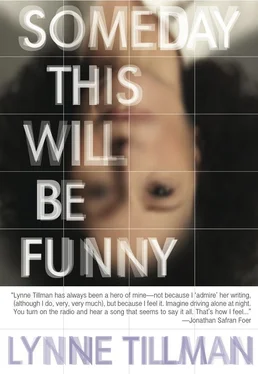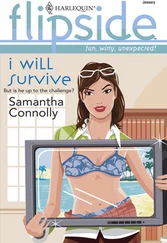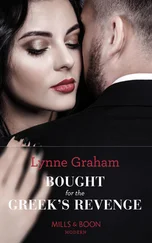“Let us forget the whole world!/ For you alone, dearest, I long!/ I have a past no more,/ I do not think of the future.” (Verdi, Don Carlos)
“Love is begot by fancy, bred by ignorance, by expectation fed,
Destroyed by knowledge, and, at best,/Lost in the moment ’tis
possessed.” (George Granville, Baron Lansdowne)
Impossibly, I love you.
“Love incapacitates me, my language is never enough. The language is the matter, language is matter, it matters, it doesn’t matter, we matter, we are matter, you and I are the matter, the matter of love, the stuff of it, you and I. We are not enough, neither is love, there’s no sense to it, it doesn’t make sense to you or me that this is what we are in, love, a state of temporary grace with each other. It doesn’t make sense, it’s not sound. It is a sound. It’s your voice.”
Dearest,
You wanted to know, when you phoned (I love the sound of your voice) what was on my mind. Just as you called I was thinking (I had pushed you out of my mind in order to think), Some days it doesn’t pay to get out of bed. Then the telephone rang. Anyway it’s Sunday, and I was thinking of Lewis Carroll and Edith Wharton, who wrote in bed, enviable position, with a board on her lap, traveling or at home, every morning. As she finished a page, she let it drop to the floor, to be scooped up later by her secretary who typed it. Lewis Carroll (I don’t know where he wrote) and Wharton, it was something about her love letters to Morton Fullerton, and Carroll’s love of Alice, his desire for young girls. Was his sense of the absurd best exemplified by the ludicrous position he fell into, his love for such a small being. How crazy it must have felt to him, spending Sundays with Alice, bending down to hear her speak all day long, looming over the tiny object of his illicit affections. Even stranger to him must have been his wild, prohibited longing, if he actually felt it, to insert his penis into that girl’s vagina. He must have felt so small and so big, and there it was, the topsy-turviness of his intimate world which he then concocted into words, and with words published (in the old sense), though no one knew, or wrote his body, I think, and its occupying desires. Alice had to become small to become big. Carroll had no sense of scale, did he, no proportion? Did he ever tell Alice, I love you? Did Lewis Carroll love Alice the way I love you or very differently? Is love the same for everyone, from its beginning to its end? If I wrote to you the way Wharton wrote her lover, would you like it? Please tell me, I want to give you what you want, I want to be everything you want me to be.
Now I’m crimson. I don’t want to feel like this, but I can’t help it, my words stall on my tongue, they won’t come, and then they can’t stop coming.
“I’m so afraid that the treasures I long to unpack for you, that have come to me in magic ships from enchanted islands, are only, to you, the old familiar red calico & beads of the clever trader….Well! and if you do? It’s your loss, after all!” (Edith Wharton, to Morton Fullerton)
Alone with longing, Paige verged toward alienation, like a spectator in her own amorous theater, where she could no longer play the ingenue. Now the paper hearts were actors, and some had important roles and others minor parts, just a line or two appended to a sexy action. Some characters were walk-ons, others appeared as comic relief.
Still, Paige fell in love, and, when she fell, plummeted into a lavish set of conventions. The modes were intractable and not her own, yet sensation maintained that her love was unique. Paige was capable of holding contradictory ideas and emotions, and, as ridiculous as it all was, she bore the irony. People bore it all the time, and some were so experienced in love’s disappointments, they had discarded or discredited it. But Paige couldn’t let it go, and, for its part, love wouldn’t leave her alone.
Mother, I cannot mind my wheel;/My fingers ache, my lips are dry;/
Oh! if you felt the pain I feel!/But oh, who ever felt as I!” (Sappho)
Ironically, I love you.
Dearest,
Your love proposes and then marries me to a different idea of me, a new identity with its own poetic license, so now I’m different from myself but joined with your self, and you are different from yourself, at least from the way you have been, and the way your life has gone, and our love is the best difference that you and I will ever experience. Isn’t it? Won’t our love mark, cloud, inflect, protect, deform, consume, and subsume us? Won’t it cast shadow or sunlight over all other experience? Isn’t love the limit? Or, more gravely, like death, an inconsiderate end parenthesis.
“Do you not hear a voice in your heart/ which promises eternal
happiness?” (Bellini, Norma)
“Who needs a heart when a heart can be broken?”
(Terry Britten/ Graham Lyle)
Paige knocked her leg hard against the table. It hurt. Then a voice whispered: I don’t want to die. Paige swung around in her chair, her solitude broken by a strange visitor, the voice an interruption or maybe a discovery, a sensation inside her. But nothing shakes or reaches the vicissitudes of the imaginary inside. I don’t want to die, it repeated. She wasn’t sure if it actually spoke, it was barely a voice, but she believed she’d heard it before.
Immortally, I love you.
“She wanted to be saved. She wanted to tear his eyes out. She wanted to eat his flesh. She wanted to carve her name on his forehead. She wanted him dead. She wanted him around. She wanted him to stand like a statue. She wanted him never to be sad. She wanted him to do what she wanted. She wanted him invulnerable and invincible. She wanted to look at him. She wanted him to get lost. She wanted to find him. She wanted him to do everything to her. She wanted to look at him.
“She had no idea who he was or what he was thinking. She only pretended that she knew him. He was an enigma of the present, the palpable unknown. He was the loved one, and he wasn’t listening to reason. He would save her, and she would never die.
“She didn’t want to die. She wanted to be saved.”
Irrationally, I love you.
Paige turned off the computer. “She wanted to be saved” winked one last time. She tore up all the hearts and threw them in the garbage and, days later, wondered if they should have been recycled with the newspapers. She liked recycling.
“…For the transaction between a writer and the spirit of the age is one of infinite delicacy, and upon a nice arrangement between the two the whole fortune of his works depend. Orlando had so ordered it that she was in an extremely happy position; she need neither fight her age, nor submit to it; she was of it, yet remained herself. Now, therefore, she could write, and write she did.” (Virginia Woolf)
She sorted through some papers, closed her books, drew the covers off her bed, and undressed. She laid her head on a pillow and shut her eyes. Paige dismissed the present, and then the dead sat on a chair and talked, and love and hate gamboled, trading blows and kisses. Friends and enemies mingling, and her neck out of joint, Paige awoke just before the sun did. She rubbed sleep from her eyes and turned on the computer.
“Love is a necklace around the throat, it needs a durable clasp, so it can be put on and taken off again and again. Some necklaces you never want to take off, though.”
Paige Turner is writing to you.
I love you.
Impressions of an Artist, with Haiku
A Portrait of Peter Dreher
A man, whose insufficient portrait will be rendered here, does not keep cats or wear a beard. He is of medium size, reasonable weight, and looks like an architect or a philosopher or an accountant. But he’s an artist, has a studio and a house and travels between those places, and others, moving with deliberation, and going and coming.
Читать дальше












